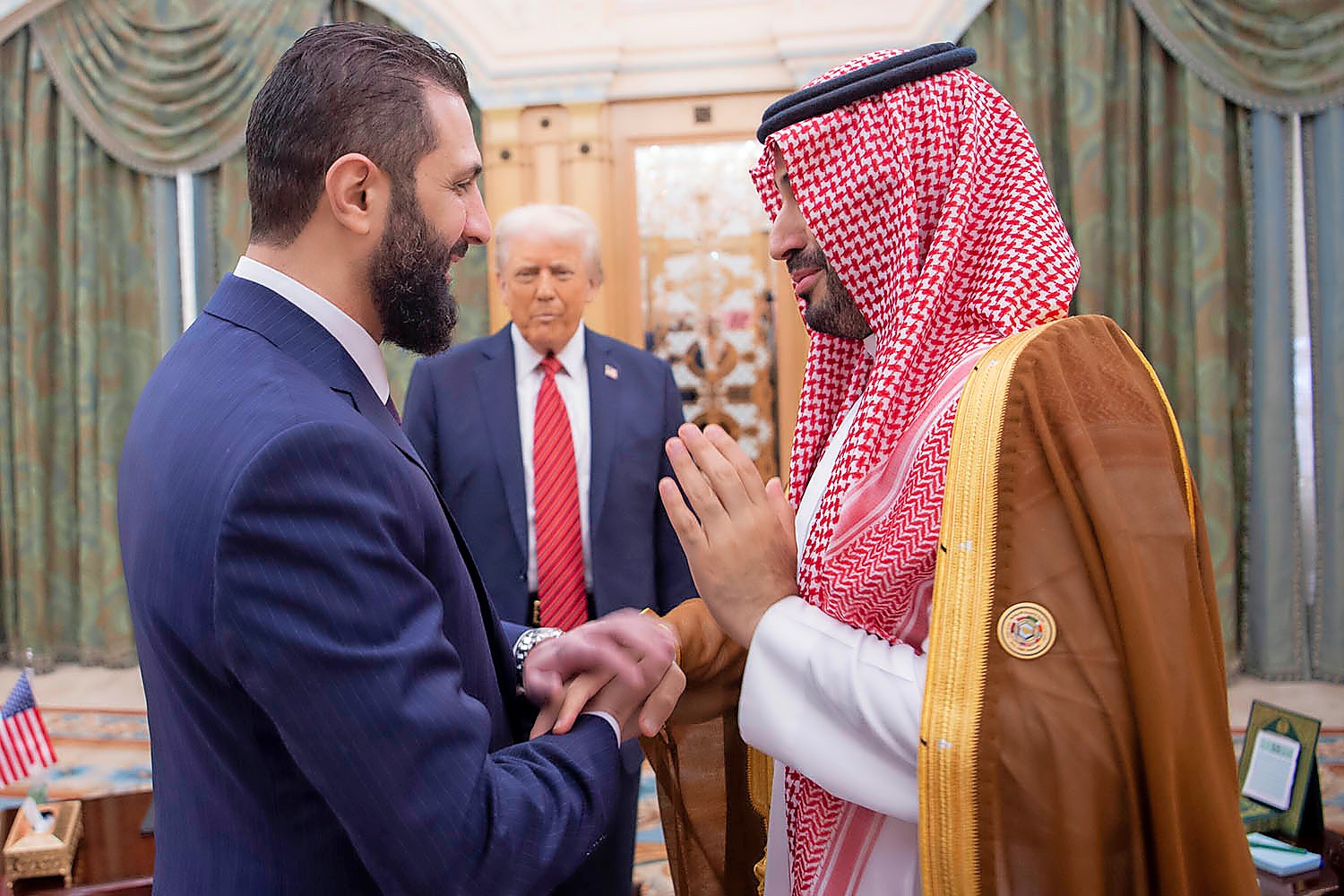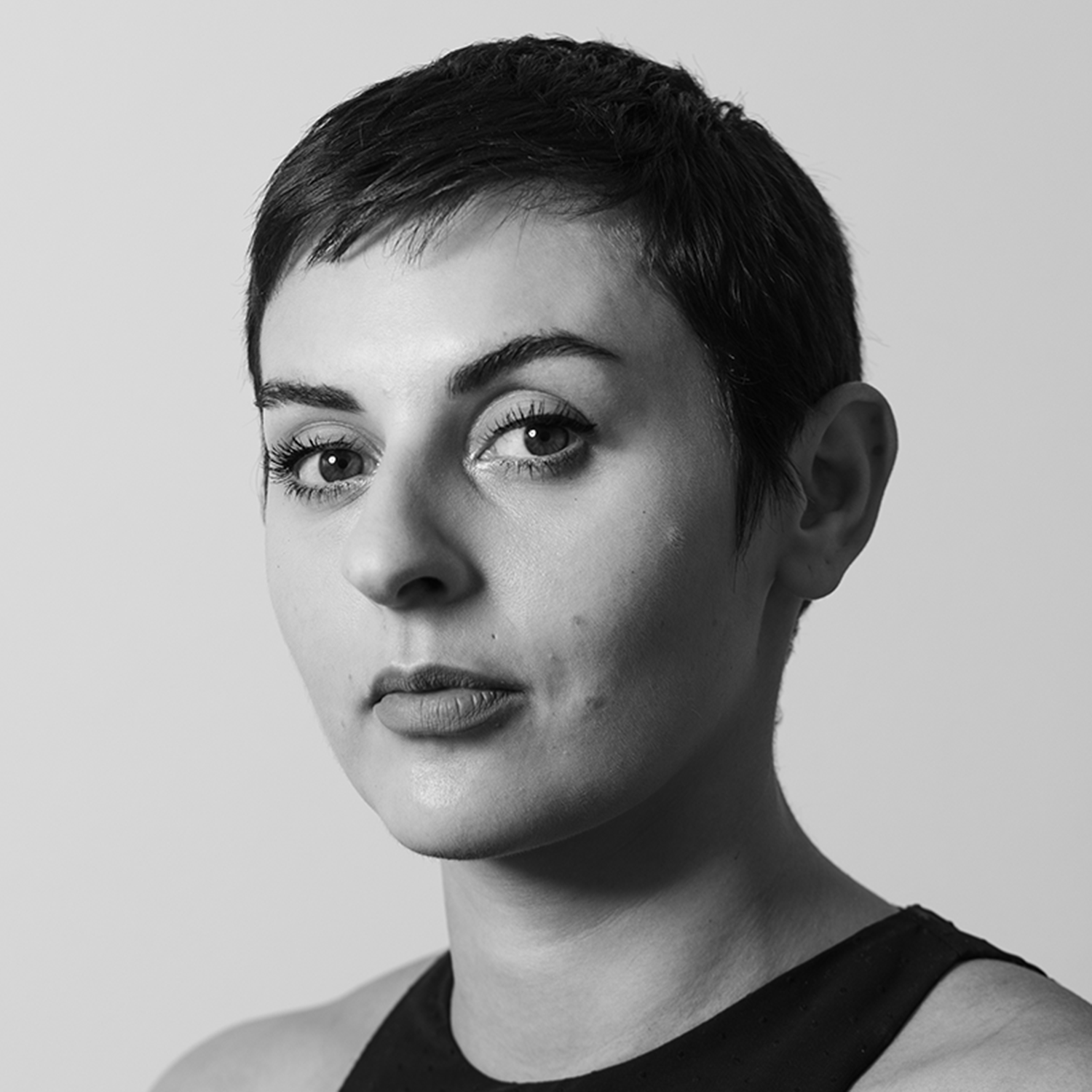After a decade with a $10m bounty on his head for leading a jihadist group, the smiling Syrian president shook hands with the leader of the country that had once held him captive in Iraq’s notorious Abu Ghraib jail. Donald Trump later described the 42-year-old Ahmed al-Sharaa as “a young attractive guy … he’s got a real shot at pulling it together”.
Trump’s sudden decision to meet Sharaa in Riyadh during his trip to the Middle East brought more than heavy symbolism. The US president later told an assembled group of Gulf leaders that “we will be dropping all of the sanctions on Syria … to give them a chance at a fresh start”. Decades of American sanctions, he added, “were really very crippling, very powerful”.
The sanctions had left Syrians feeling cut off from the outside world for decades, and news they would be abolished brought people out into the streets nationwide to celebrate. Huge crowds assembled in squares in Damascus, Homs and Idlib, with many waving green Saudi Arabian flags alongside Syrian ones.
“I am elated to see this happening,” the Syrian financial expert Karam Shaar said in a video message, the sound of car horns on the streets of Damascus in the background. “We Syrians deserve a fresh start.”
For years, Syrians living under the crushing pressure of dictatorial rule were unable to connect to the international banking system or even to American email providers without a workaround, due to sanctions targeting former president Bashar al-Assad and his government.
While the Syrian leader and his extended family luxuriated in opulent palaces and villas, wore designer clothes and drove sports cars, ordinary Syrians risked prison time if they broke a web of laws that governed trading foreign currency.
Imported goods were often hidden away to avoid suspicion. People fearfully spoke about dollars in code, using terms like “a bunch of parsley”, or “mint”, to discuss black market prices for stacks of cash.
Trump’s announcement flipped the table on years of US policy, which had maintained a broad range of sanctions intended to target the Assad family and their benefactors long after many of them had fled to Moscow last December, as Sharaa spearheaded an insurgency. The US president proposed not just waiving some sanctions, but removing them all entirely, going far beyond what advocates had been hoping for.
One lobby group, the Syrian Emergency Task Force (SETF), met Sharaa and other Syrian officials a week before Trump’s Middle East trip, and worked to entice the US president to see a financial opportunity in the fledgling state. American telecoms companies could quickly hustle out their Chinese rivals in Syria, they suggested, while one American businessman joked someone could build a Trump tower in Damascus.
‘The sanctions had left Syrians feeling cut off from the outside world for decades’
‘The sanctions had left Syrians feeling cut off from the outside world for decades’
“Everyone was taken by surprise at what the president announced – it far exceeded expectations. He landed on the absolute maximalist position for removing sanctions,” said a US government official who asked not to be named. For months, a fierce battle has raged inside the Trump White House between pragmatic bureaucrats, keen to lift sanctions with Assad gone, and ideologues led by Sebastian Gorka, the National Security Council’s director of counter-terrorism, who are suspicious of Sharaa’s jihadist past and want to see sanctions remain.
Newsletters
Choose the newsletters you want to receive
View more
For information about how The Observer protects your data, read our Privacy Policy
Gorka’s camp, the official and others said, were responsible for drawing up a list of conditions presented to the new Syrian foreign minister Asaad al-Shaibani in Brussels two months ago that contained several clauses they described as “poison pills”, preventing the waiver of US sanctions through conditions the new Syrian government could meet.
“Only Trump had the boldness and authority to push for a full sanctions removal. The big debate now, still not settled, is the degree and pace of the removal,” the official said. “Even now, if he doesn’t order from the top that you remove all sanctions, it will get chopped up into incrementalism and be really slow.”
Consistent with his approach to foreign policy, Trump overturned decades of precedent with his words, although implementing his demands remains open to interpretation. As the US president toured the Middle East, many in Washington remained unsure what could come next.
State department staff had quietly asked treasury officials to draw up a plan to prevent Syria’s economy from teetering towards collapse and stabilise the central bank now that Assad is gone, but their plans had remained on pause due to sanctions. Trump’s declaration means theoretically they can get to work, but only after the bureaucratic fight to lift sanctions is won.
Delaney Simon with the International Crisis Group called Trump’s decision “a monumental step”, and “something virtually unprecedented in the recent history of sanctions relief”. Still, she warned, removing sanctions is a complicated process by design, requiring input from multiple government agencies as well as congress. Advocates like SETF point to the Caesar Act, which Trump signed in 2019 and sanctioned Assad for war crimes against his people, as now hindering Syria’s reconstruction, and the need for congress to vote fast to remove it.
The government official said clashes could still happen over the terms of each waiver and input from the various parts of government. Mouaz Moustafa, who heads SETF, said: “The president’s policy must be defended from detractors within his own administration.”
‘Consistent with his approach to foreign policy, Trump overturned decades of precedent with his words’
‘Consistent with his approach to foreign policy, Trump overturned decades of precedent with his words’
To this end, the SETF decided to make Trump’s work easy, putting together what they call “a mock executive order”. The document, seen by The Observer, would rapidly thaw relations with Washington’s new potential ally by unfreezing Syrian government property and removing blocks to doing business. One clause would issue a general licence legalising every formerly banned transaction involving Americans or the US financial system, allowing “the import and export of goods, services and technology, and investments in Syria’s energy, infrastructure and construction sectors”.
Moustafa believes the possible executive order presents the kind of photo opportunity that Trump enjoys. “It’s one of these documents that Trump loves to sign … and in doing so get around those who may want to slow lifting sanctions,” he said.
Syrian financial experts like Shaar said despite the joy on the streets of Damascus, plenty of questions remain. Despite Trump’s admiration for Sharaa, the Syrian leader and others within his cabinet are still the subject of United Nations counter-terrorism sanctions, leaving a major question about whether Washington will push to have these lifted by the security council. “There is a lot to celebrate, but also we shouldn’t jump to conclusions,” said Shaar.
Photograph by Bandar Aljaloud/Saudi Royal Palace via AP

